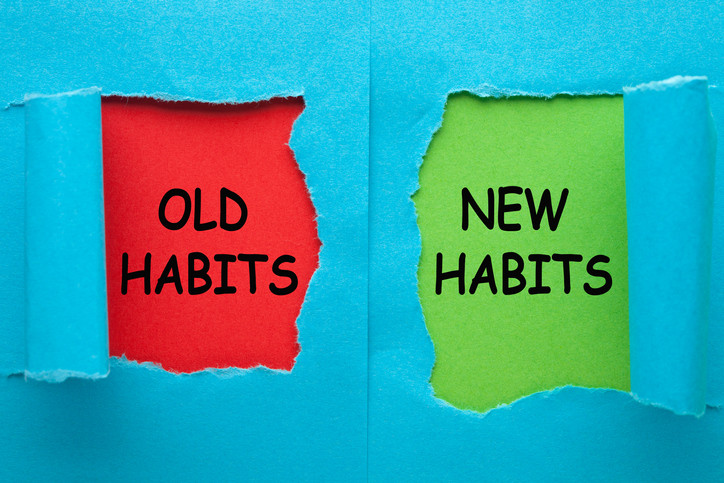12 Small Changes That Will Completely Transform Your Health

Feeling overwhelmed by the prospect of overhauling your health? You don't need drastic measures to achieve significant improvements. Small, incremental changes, consistently applied, can yield remarkable results over time.
Experts in nutrition, fitness, and behavioral psychology agree that lasting transformation often stems from building healthy habits gradually. Incorporating these 12 modest adjustments into your daily routine could be the key to unlocking a healthier and more vibrant you.
Hydrate Smarter
Dehydration can manifest in various ways, from fatigue to headaches. Instead of waiting until you're thirsty, proactively sip water throughout the day.
Carry a reusable water bottle and aim to refill it several times. The Centers for Disease Control and Prevention (CDC) recommends that adults drink at least 8 cups of water per day.
Embrace Mindful Eating
Many of us eat mindlessly, often distracted by screens or other activities. Mindful eating involves paying attention to the taste, texture, and aroma of your food.
Slow down, savor each bite, and put down your fork between bites. This practice helps you recognize when you're truly full, preventing overeating.
Walk More Often
You don't need a gym membership to increase your physical activity. Incorporating more walking into your day can make a big difference.
Take the stairs instead of the elevator, walk during your lunch break, or park farther away from your destination. The American Heart Association recommends at least 150 minutes of moderate-intensity exercise per week, and walking is a great way to accumulate those minutes.
Prioritize Sleep
Sleep is essential for both physical and mental health. A lack of sleep can impair cognitive function, weaken the immune system, and increase the risk of chronic diseases.
Aim for 7-9 hours of quality sleep per night. Establish a regular sleep schedule and create a relaxing bedtime routine to improve your sleep quality.
Reduce Added Sugar
Excessive sugar consumption is linked to numerous health problems, including weight gain, type 2 diabetes, and heart disease. Start by becoming aware of how much added sugar you're consuming.
Read food labels carefully and choose unsweetened alternatives whenever possible. The Food and Drug Administration (FDA) provides detailed information about added sugars on nutrition labels.
Incorporate More Fruits and Vegetables
Fruits and vegetables are packed with vitamins, minerals, and antioxidants that are essential for good health. Aim to fill half your plate with fruits and vegetables at each meal.
Experiment with different varieties to find your favorites and keep a variety of colorful produce on hand for easy snacking.
Practice Gratitude
Cultivating gratitude can have a profound impact on your mental well-being. Taking a few moments each day to appreciate the good things in your life can reduce stress and improve your overall mood.
Keep a gratitude journal or simply reflect on things you're grateful for each day. It can positively impact your psychological health according to research in the Journal of Happiness Studies.
Stretch Regularly
Stretching improves flexibility, reduces muscle tension, and can help prevent injuries. Incorporate a few simple stretches into your daily routine.
Stretch when you wake up in the morning, after you exercise, or anytime you feel stiff. The Mayo Clinic provides various stretching exercises to target different muscle groups.
Limit Screen Time
Excessive screen time can strain your eyes, disrupt your sleep, and contribute to a sedentary lifestyle. Set limits on your screen time and take breaks throughout the day.
Try the 20-20-20 rule: every 20 minutes, look at something 20 feet away for 20 seconds. Consider implementing “screen-free” hours each day.
Practice Deep Breathing
Deep breathing exercises can help reduce stress and anxiety. Take a few minutes each day to focus on your breath.
Inhale deeply through your nose, hold for a few seconds, and exhale slowly through your mouth. Repeat several times to calm your nervous system. Harvard Medical School provides good research around meditation and deep breathing.
Connect with Others
Social connection is crucial for mental and emotional well-being. Make an effort to connect with friends, family, or community members.
Schedule regular phone calls, meet up for coffee, or volunteer your time. According to the National Institute on Aging, studies show strong relationships and social connections help older adults to live longer, healthier lives.
Plan Your Meals
Planning your meals can help you make healthier food choices and avoid impulsive decisions. Take some time each week to plan your meals for the upcoming days.
Create a grocery list and stick to it when you go shopping. This ensures you have healthy ingredients on hand and are less likely to reach for unhealthy snacks or convenience foods.
These small changes, while seemingly insignificant on their own, can add up to a significant improvement in your overall health and well-being. Remember, consistency is key.
Start with one or two changes and gradually incorporate more as you feel comfortable. Over time, these healthy habits will become second nature, leading to a healthier and happier you.


















